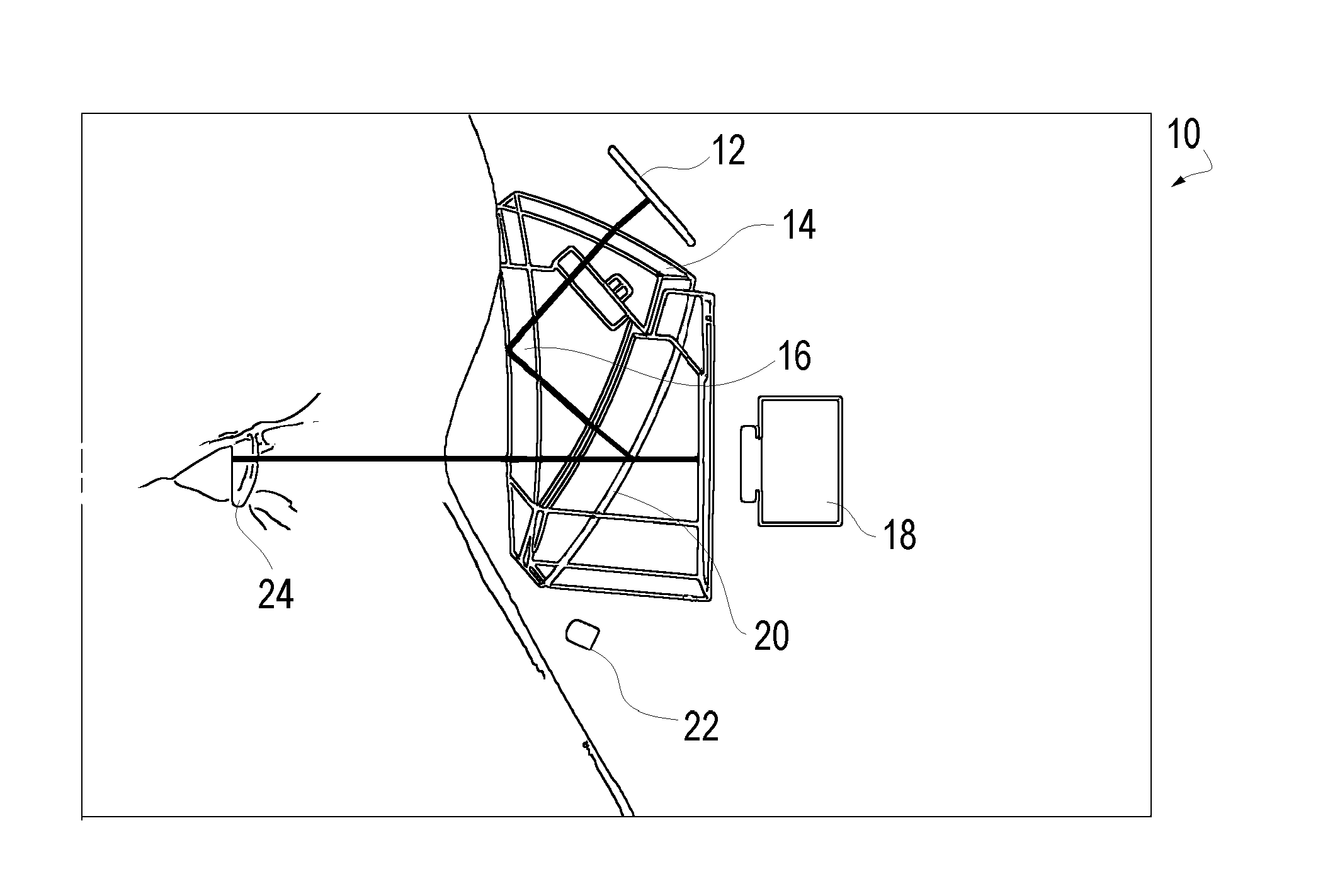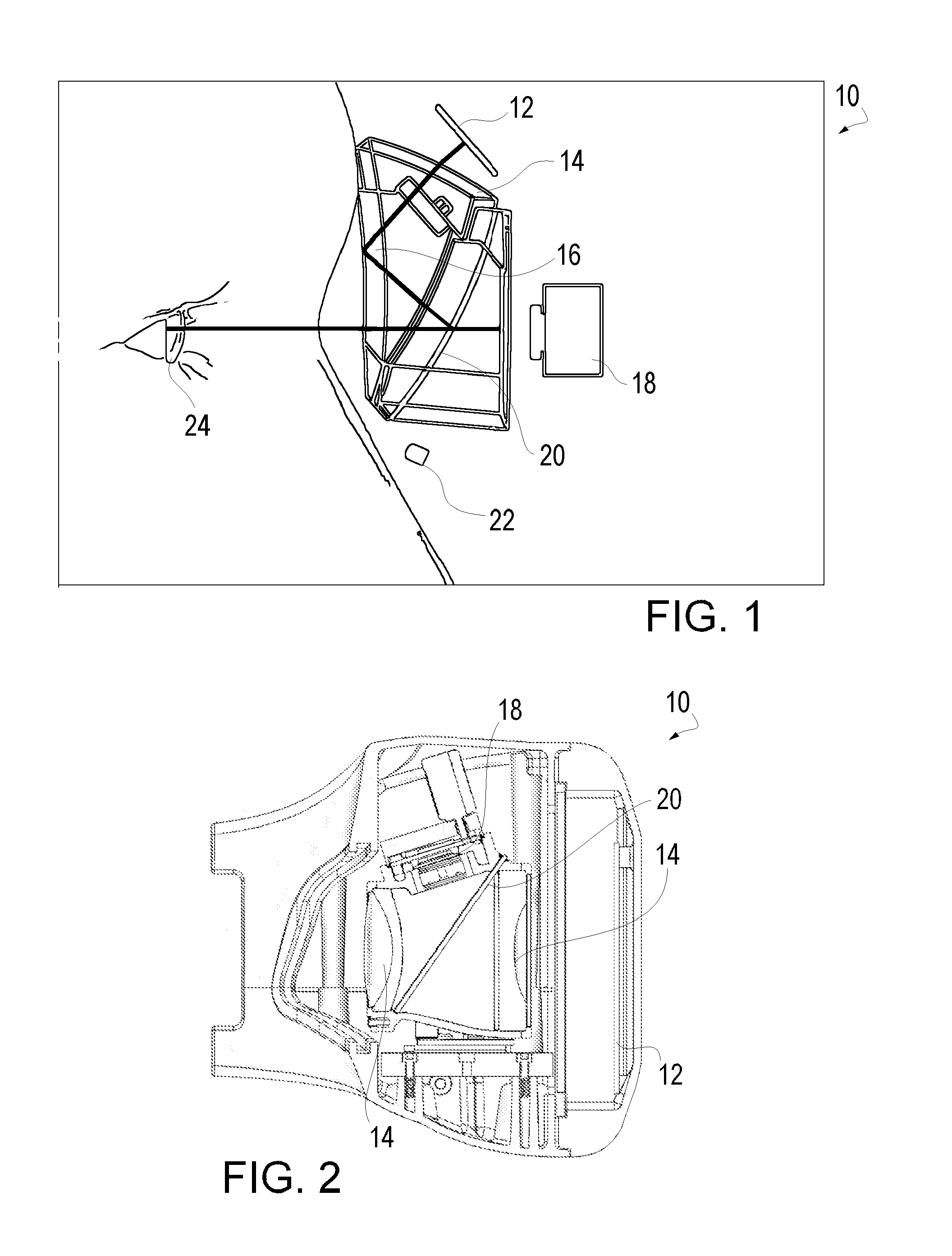Quantitative, non-invasive, clinical diagnosis of traumatic brain injury using vog device for neurologic optokinetic testing
a traumatic brain injury and optokinetic testing technology, applied in the field can solve the problems of traumatic brain injury, military personnel, and often suffering blast injuries to the head, and achieve the effect of advanced use and cost effectiveness
- Summary
- Abstract
- Description
- Claims
- Application Information
AI Technical Summary
Benefits of technology
Problems solved by technology
Method used
Image
Examples
Embodiment Construction
[0020]It is noted that, as used in this specification and the appended claims, the singular forms “a,”“an,” and “the” include plural referents unless expressly and unequivocally limited to one referent.
[0021]The method of diagnosis of traumatic brain injury according to one aspect of the invention comprising the steps of: providing a stimulus generating eye tracking unit 10 (examples of which are shown in FIGS. 1 and 2), such as a head mounted goggle based eye tracking unit that can present virtual reality based visual targets to the subject. The unit 10 as shown may be categorized as a type of Video-oculography (VOG) system, which as accurately defined by Richard E. Gans, PhD, who is the Founder and Executive Director of the American Institute of Balance and he served on the board of the American Academy of Audiology, in the Hearing Journal: May 2001-Volume 54-Issue 5-pp 40,42 “Video-oculography is a method of recording eye movement through the use of digital video cameras. This is...
PUM
 Login to View More
Login to View More Abstract
Description
Claims
Application Information
 Login to View More
Login to View More - R&D
- Intellectual Property
- Life Sciences
- Materials
- Tech Scout
- Unparalleled Data Quality
- Higher Quality Content
- 60% Fewer Hallucinations
Browse by: Latest US Patents, China's latest patents, Technical Efficacy Thesaurus, Application Domain, Technology Topic, Popular Technical Reports.
© 2025 PatSnap. All rights reserved.Legal|Privacy policy|Modern Slavery Act Transparency Statement|Sitemap|About US| Contact US: help@patsnap.com


